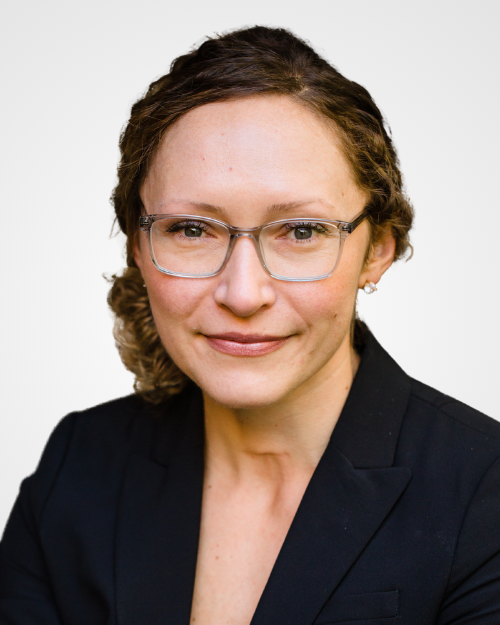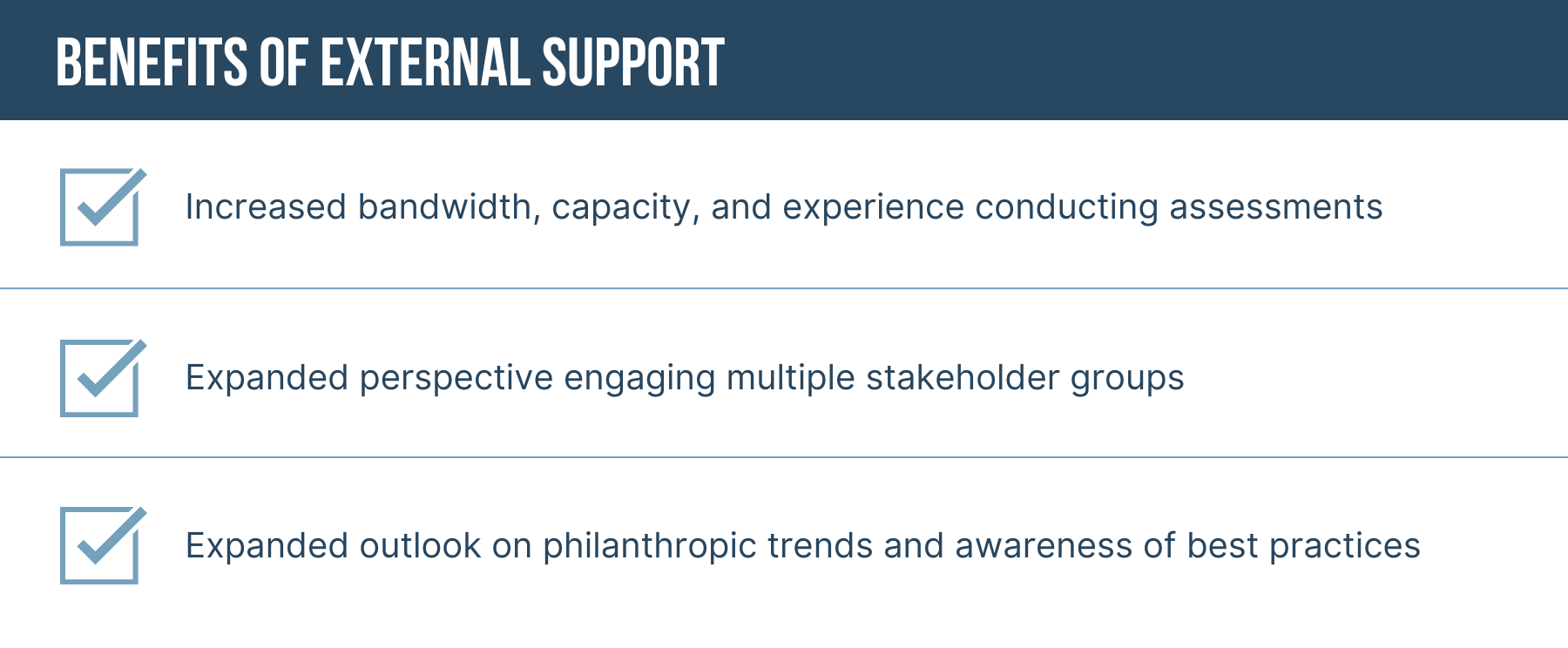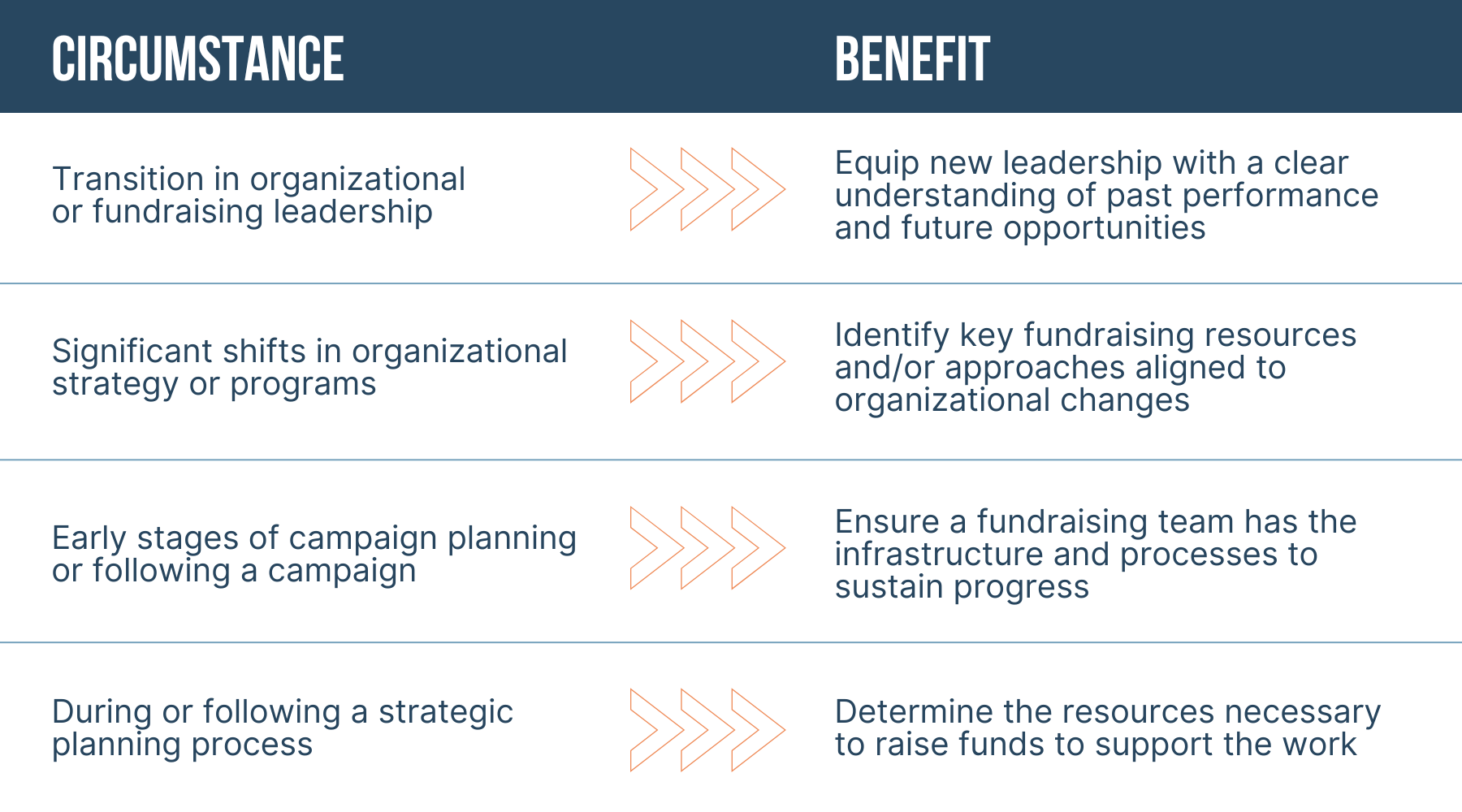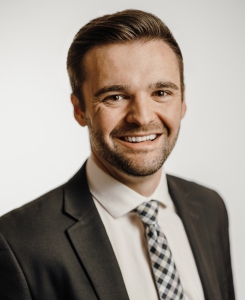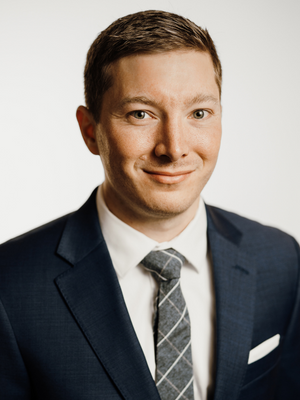
The term “transformational gift” refers to a significant donation with the potential to substantially impact an organization’s trajectory. While transformational gifts can yield highly visible results for organizations and their communities, their origins may seem mysterious, as these sizable commitments can be years in the making.
There is a critical sequence of milestones throughout the donor cultivation cycle that can help position organizations for gifts of transformational scale. Stemming from strategic planning and the cultivation of key donor prospects, securing and capitalizing on a transformative investment hinges on strong leadership, a compelling vision for the future, and organization-wide coordination.
With over 20 years of nonprofit advancement experience, CFA Principal Mid-Atlantic Johnny Burleson shares his insights on successfully pursuing transformational gifts.
Strategically Cultivating a Transformational Gift
The first step toward pursuing a transformational gift is an ambitious and compelling vision for the future. “This vision is typically formulated through a thorough planning process with the support of key internal and external stakeholders, often in preparation for a campaign,” shares Johnny. The end result serves as the basis for a fundraising case for support by quantifying impact, detailing implementation plans, and outlining the financial resources required to bring that vision to fruition.
Once internal alignment is established, there is an opportunity to bring top donor prospects to the table. As CFA recently shared in How to Approach Major Donors as Stakeholders, an organization’s most promising donors are often already in its database. With a passion for your organization’s work and mission, these donors have a demonstrated commitment through multiple years of giving, confirmed financial capacity to make a significant investment, and possible prior service as board members or volunteers.
After identifying top prospects, inviting them into the planning process creates the opportunity for active, authentic, and strategic cultivation during a pivotal stage of organizational development and campaign planning. “By bringing donor prospects into the process early and often, organizations can cultivate them as insiders while gaining critical insights based on the donors’ areas of expertise,” adds Johnny. He recommends keeping these donors close throughout this phase by regularly seeking feedback and advice on everything from the smallest of details to highly significant considerations.
- Learn how to activate your strategic plan to improve fundraising results!
Making a Transformational Ask
Through active involvement in the early stages of strategic planning and campaign feasibility studies, donor prospects may know years in advance that a big ask is coming. Within the context of a campaign’s fundraising strategy, these prospects will understand that a transformational commitment fulfilling the highest tier in the campaign’s giving pyramid will initiate a succession of future giving toward the vision that they helped to create. Strategic cultivation through this planning process brings an organization’s and donor’s shared vision into alignment while building trust and confidence along the way.

With extensive groundwork laid, the act of requesting a transformational gift should come as no surprise. Offering the donor opportunities to say “yes” along the way by asking strategic questions and continually confirming their approval throughout the cultivation process increases the likelihood that their response to a formal request for support will follow suit.
Johnny emphasizes that when it comes time to make the ask, “The organization must be very strategic, articulating the influence that this gift will have on the organization’s trajectory and the impact it will make in specific and quantifiable terms.” And while the exact size of a transformational gift will vary from one organization to another, Johnny shares that, “It is more about strength of alignment and shared vision for the overarching impact that the campaign will embrace.”
As CFA recently shared, “Whether the donor responds with a ‘yes’, ‘no’, or ‘not right now,’ the path to a stronger donor relationship requires a graceful, grateful response, and a willingness to learn, gathering insights that will keep the door open for future engagement.” If a donor indicates the timing is not right, then the moment becomes about continuing to steward that ask until the timing aligns.
- Organizations that receive an unexpected transformational gift may be less prepared to leverage the investment for long-term stability. CFA frequently partners with organizations seeking to leverage a specific gift to build alignment and test the feasibility of a broader case for support.
Leveraging a Major Gift’s Transformative Potential
Once a transformational commitment is made comes a pivotal moment: advancing the organization’s vision for the future by inspiring additional generosity. “Securing a transformational gift becomes a significant opportunity to elevate the organization’s brand and mission through organic media coverage,” shares Johnny.

With clear internal alignment established during the strategic planning stage between core organizational functions, fundraising, communications, finance, and program teams will be ready to seize the opportunity if and when a transformational gift is committed.
- Looking to develop a consistent, compelling communications plan built around your campaign’s case for support? Check out CFA’s Donor Communications & Outreach Guide for more details about creating a donor communications plan to support your campaign.
Subsequent communications will depend on the donor’s interest for recognition and exposure, while key audiences and communication channels for announcing this transformational gift will depend on the stage and goals of the organization’s vision. For organizations that do not yet have a fundraising goal ready to publicize, the organization’s history of success and future vision that influenced the gift can serve as key messages. “This becomes a significant storytelling moment for the organization, reflecting back on the organization’s trajectory while setting the stage for its future impact,” adds Johnny.
For organizations kicking off a broader campaign, securing a transformational gift may signal a transition to a public phase of a campaign. As CFA Senior Manager of Campaigns Anne Spears shared in a recent article, “The key to public phase fundraising success hinges on a smooth passing of the baton from an organization’s development team to their marketing team.” While the decision to transition into a campaign’s public phase is highly nuanced, Anne advises clients to weigh their progress, momentum, and anticipated timeline as they consider the most strategic course forward.
Stewarding Transformational Investments
Continued donor engagement throughout each stage of a campaign and subsequent implementation plans are critical to the ongoing stewardship of a transformational gift. Delivering on the clear plans and quantifiable impact that secured the transformational investment requires the ongoing commitment and collaboration between the organization’s fundraising, communications, finance, and program teams.
And while certain details within the plan may shift in response to environmental factors or opportunities, organizations can sustain a high level of donor trust through regular communications along with continual opportunities to witness, advise, and engage in the work ahead.
Partner With Us
CFA’s consulting team brings vast experience in major giving strategies and a nuanced approach to conducting campaigns for each organization we serve. If you are interested in exploring how CFA can help position your organization to secure gifts of a transformative scale, contact CFA today.
Johnny Burleson, Principal, Mid-Atlantic
Johnny comes to CFA with over 20 years of nonprofit advancement experience in the arts and cultural, educational, and human services sectors. His proven track record of high-trust, high-performance leadership spans multiple areas of expertise, including campaign planning, major gifts, corporate and foundation relations, and government relations.
As Principal, Mid-Atlantic, Johnny oversees projects spanning CFA’s suite of fundraising counsel services. Johnny believes in aligning donors’ passions with innovative ideas, emphasizing the importance of promoting philanthropy through coalition-building and partnerships to achieve the greatest impact.
Prior to joining CFA, Johnny served as Chief Advancement Officer for North Carolina Museum of Art in Raleigh, where he successfully restructured development and membership operations and transitioned the organization from a transactional approach to an institution-wide culture of philanthropy. Johnny also oversaw the planning of the largest fundraising campaign in the museum’s history.
Prior to his role at NCMA, Johnny held the position of Director of Strategic Partnerships with the Blue Cross and Blue Shield of North Carolina Foundation, playing a pivotal role in building and stewarding local, state, and national relationships to bring philanthropic and federal resources to North Carolina in support of stronger, healthier communities. Johnny’s extensive career also includes 17 years in higher education philanthropy and advancement. He began at his alma mater, North Carolina State University, where he received a BS in Textiles with a focus on the Italian textile industry. Additionally, he held leadership positions at Appalachian State University and the University of North Carolina School of Government in Chapel Hill.
Johnny has volunteered as board member for several North Carolina nonprofits, including Preservation North Carolina, Triangle Land Conservancy, Lost Province Center for the Cultural Arts, Ashe County Chamber of Commerce, and Ashe County Arts Council. Outside of work, Johnny can be found on Old Orchard Creek, his blueberry farm located in Ashe County, NC. His farm is on the National Historic Register and is also protected by a conservation easement, reflecting his personal passion for the mountains, the arts, historic preservation, water, land, trails, local food, and sustainable agriculture.
Kendall Carlson, Content Writer
A frequent contributor to CFA’s digital content, Kendall Carlson has spent her career advancing nonprofit organizations across the Twin Cities. With 16 years of experience, Kendall brings a balance of strategic and operational leadership spanning fundraising, program development, evaluation, and strategic planning.
Most recently, Kendall served as Development and Communications Director at Hired, where she diversified revenue for the organization’s $11M budget and increased individual giving by 60%, led a rebrand, and launched an organization-wide data for impact initiative. Prior to Hired, Kendall served at Greater Twin Cities United Way, where she led an advancement strategy team to increase investment and engagement from the organization’s top corporate and major donors. Kendall is known as a strategic, solution-oriented leader with a high capacity for detail and commitment to quality. She launched her consulting practice, Luminate Consulting, in 2022 to bring her skills in fundraising and program strategy to nonprofits seeking sustainable growth.


